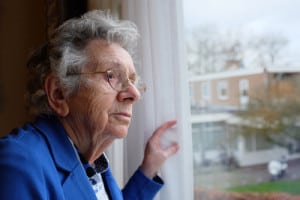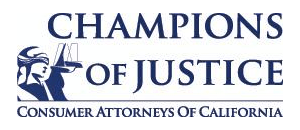 Not only is elder and dependent adult abuse prohibited by law, but it is wrong. Elders, seniors, and dependent adults deserve to live with respect and dignity. Unfortunately, many unscrupulous actors fail to respect the aging and dependent members of our communities and take advantage of them, neglect them, and inflict pain, suffering, and harm. Our attorneys at Ribera Law Firm have experience in compassionately helping seniors, dependent adults, and their families seek justice and compensation for the harm caused by perpetrators of elder and dependent adult abuse.
Not only is elder and dependent adult abuse prohibited by law, but it is wrong. Elders, seniors, and dependent adults deserve to live with respect and dignity. Unfortunately, many unscrupulous actors fail to respect the aging and dependent members of our communities and take advantage of them, neglect them, and inflict pain, suffering, and harm. Our attorneys at Ribera Law Firm have experience in compassionately helping seniors, dependent adults, and their families seek justice and compensation for the harm caused by perpetrators of elder and dependent adult abuse.
What is Elder Abuse?
Elder abuse is abuse against individuals aged 65 or older and comes in many different forms, including physical elder abuse, sexual elder abuse, caregiver neglect, psychological or emotional abuse, and financial abuse. Being a victim of such abuse can cause embarrassment and oftentimes, victims minimize or are in denial of the abuse that is occurring. Sometimes, one may not even know that abuse is occurring, as in the case of financial abuse.
Physical Abuse
Physical abuse is the infliction of physical force that may result in bodily injury, physical pain, or impairment. Physical abuse may include hitting, kicking, pushing, biting, slapping, cutting, burning, and other uses of physical force. Physical abuse also includes over-medicating or physically restraining the victim.
Signs of physical abuse include:
- Complaints or remarks about being hit, kicked, punched, grabbed, slapped, or pushed;
- Signs of overmedication, including drowsiness, slurred speech, altered consciousness, drooling, lethargy, and disorientation;
- Bruises or skin discoloration;
- Burns, cuts, lacerations, or scratches;
- Jumpiness or increased startle response;
- Mood changes;
- Unexplained soreness
Caregiver Neglect
Caregivers include in-home care providers, nurses, and caregiving staff at hospitals, residential care homes, convalescent hospitals, residential care facilities for the elderly, rest homes, and rehabilitation centers. Caregivers have a duty to help ensure the basic needs (such as nutrition, hydration, hygiene, or access to medical care) of a senior or dependent adult are met. If a caregiver fails to reasonably address these needs, he or she has committed elder neglect.
Signs of caregiver neglect include:
- Weight loss or malnourishment;
- Dehydration;
- Bedsores;
- Lesions or abrasions;
- Skin or respiratory infections;
- Falls;
- Hospitalization;
- Choking incidents;
- Loss of dentures, prosthetics, canes, walkers, glasses, or other assistive devices
Signs of Sexual Abuse
Sexual abuse is defined as non-consensual sexual contact of any kind with an elderly person. Sexual contact with a person incapable of giving consent is also sexual abuse. It includes, but is not limited to unwanted touching, rape, coerced nudity, and sexually explicit photographing.
Signs of sexual abuse include:
- Complaints of being touched inappropriately or sexually abused;
- Bloody clothes, undergarments, or sheets;
- Unexplained sexually transmitted diseases;
- Unusual or unexplained avoidance of physical forms of affection that the person usually is comfortable with
Signs of Financial Abuse
Financial abuse is the illegal use of an elder or dependent adult’s funds, property, or assets. Signs of financial abuse include:
- Unexpected loss of assets, funds, or property;
- Property transfers to strangers, caregivers, or attorneys;
- Inclusion of additional names on one’s bank or credit card;
- Unauthorized withdrawal of the elder’s funds;
- Suspicious changes to a will;
- Suspicious beneficiary changes to a trust;
- Misuse of one’s checks, credit cards, or accounts;
- Loved one repeatedly asks to borrow money even though they should not have to;
- Sudden appearance of previously uninvolved relatives claiming their rights to an elder or dependent abuse’s affairs;
- An elder or dependent adults complaints of being financially abused or taken advantage of
Signs of Psychological or Emotional Abuse
Psychological or emotional abuse is the infliction of anguish, pain, or distress through either verbal or nonverbal acts. This may include insults, threats, humiliation, and harassment. Additionally, isolating an elder or dependent adult from friends, family, or regular activities is also emotional or psychological abuse.
Signs of psychological/emotional abuse include:
- Unexplained or unusual change in mood;
- Unexplained agitation or anger problems;
- Unexplained incontinence;
- Sucking, biting, or rocking;
- Complaints of being psychologically or emotionally abused
Who is a Dependent Adult?
Person between the ages of 18 and 64 who has physical or mental limitations that restrict his or her ability to carry out normal activities or to protect his or her own rights.
Dependent adults includes adults with:
- developmental disabilities
- physical disabilities
- Alzheimer’s disease or dementia
- mental illness, including schizophrenia, bipolar disorder, schizoaffective disorder, and severe depression
A dependent adult is also anyone between the ages of 18 and 64 years who is admitted as an inpatient for a 24-hour stay or longer at a:
- convalescence home, hospital, or facility
- nursing home
- inpatient psychiatric facility
- rehabilitation home
- hospital, including a Veteran’s Hospital
- skilled nursing facility
- intermediate care facility
- hospice facility
- drug treatment program
What to do if you suspect elder abuse
- Ask your loved one if they are okay. Be specific. Ask them if they are getting everything they need. Ask if they are being harmed or abused. Let them know you are concerned;
- Call Adult Protective Services if you suspect elder abuse, but 911 if there is an emergency;
- Contact Ribera Law Firm to speak with an attorney









